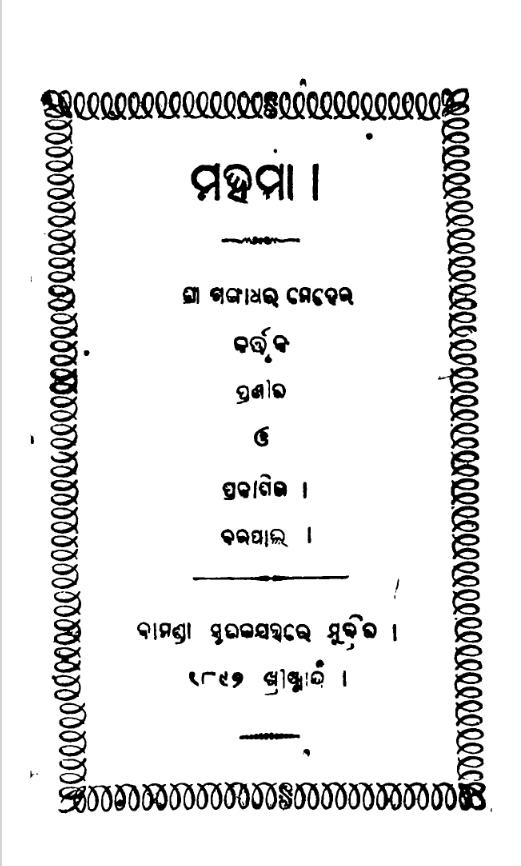Gangadhara Meher’s Mahima, published in 1897, stands as a beacon of spirituality and poetic expression that transcends time. Renowned for his contributions to Odia literature, Meher weaves a delicate tapestry of nature, devotion, and the divine throughout this work. Mahima serves not only as a collection of poetry but also as a profound reflection on the beauty of existence and the sacredness of life.
At the heart of Mahima lies the theme of devotion—an unwavering love for the divine punctuated by a deep appreciation for the natural world. Meher’s verses echo a profound understanding of the interconnectedness between humanity and nature, presenting a vision where the two are inseparable. The portrayal of nature often serves as a metaphor for divine qualities, illustrating how the sacred can be found in the everyday experiences of life.
One of the striking features of Meher’s poetry is his ability to depict nature as a manifestation of the divine. With vivid imagery, he captures the splendor of landscapes, seasons, and natural phenomena. For instance, the sight of a blooming flower or the gentle sway of trees in the breeze become symbols of God’s grace and beauty. Meher invites readers to see the divine hand in every aspect of nature, suggesting that each element of the world reflects a deeper spiritual truth.
Devotion and Surrender:
The poems in Mahima convey a profound sense of devotion that transcends mere admiration for the divine. Meher’s verses articulate an intimate relationship between the devotee and God, marked by surrender and trust. His expressions are heartfelt and earnest, allowing the reader to resonate with the emotions of love, longing, and submission that characterize the spiritual journey. This relationship embodies the essence of Bhakti, where the devotee finds solace and strength in surrendering to a higher power.
Beyond devotion, Meher’s poetry delves into existential themes, exploring the nature of existence and the human condition. Through reflective verses, he contemplates life, mortality, and the quest for meaning. The juxtaposition of transient human experiences against the backdrop of eternal divinity enriches the reader’s understanding of life’s paradoxes. Meher’s insights encourage readers to ponder their own spiritual paths and the significance they attribute to their experiences.
Mahima is also a celebration of diversity in existence. Meher’s poetry embraces the multiplicity of life forms and experiences, suggesting that each contributes to the grand tapestry of creation. This theme reflects the idea of unity in diversity, advocating for harmony and understanding among different beliefs, cultures, and perspectives. His inclusive approach to spirituality resonates deeply in today’s world, emphasizing the value of empathy and acceptance.
Books Info
| Books name | Mahima / ମହିମା |
| Author | Gangadhara Meher |
| No Of pages | 15 |
| Publisher | NA |
| Publication | 1897 |
| Printed At | Bamanda SutakaJantrare |
| Distributor | NA |

